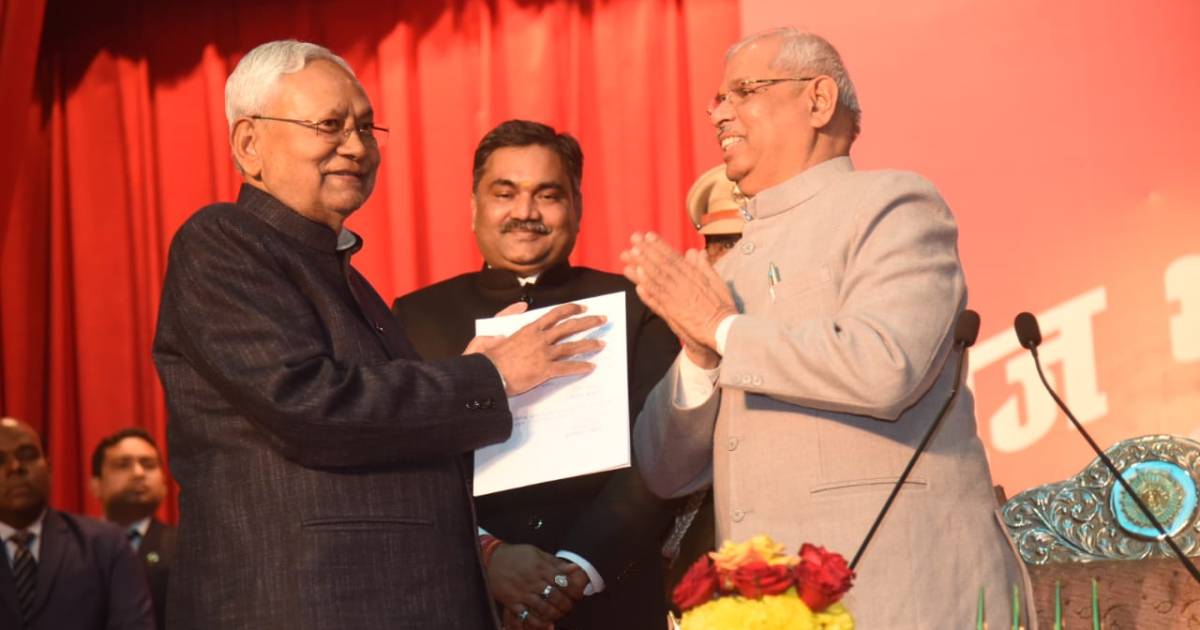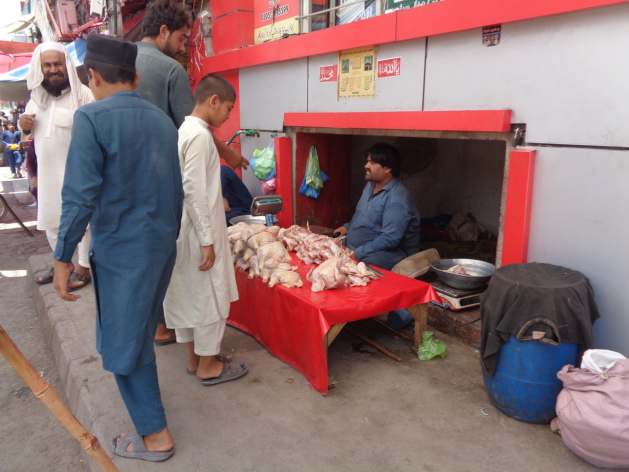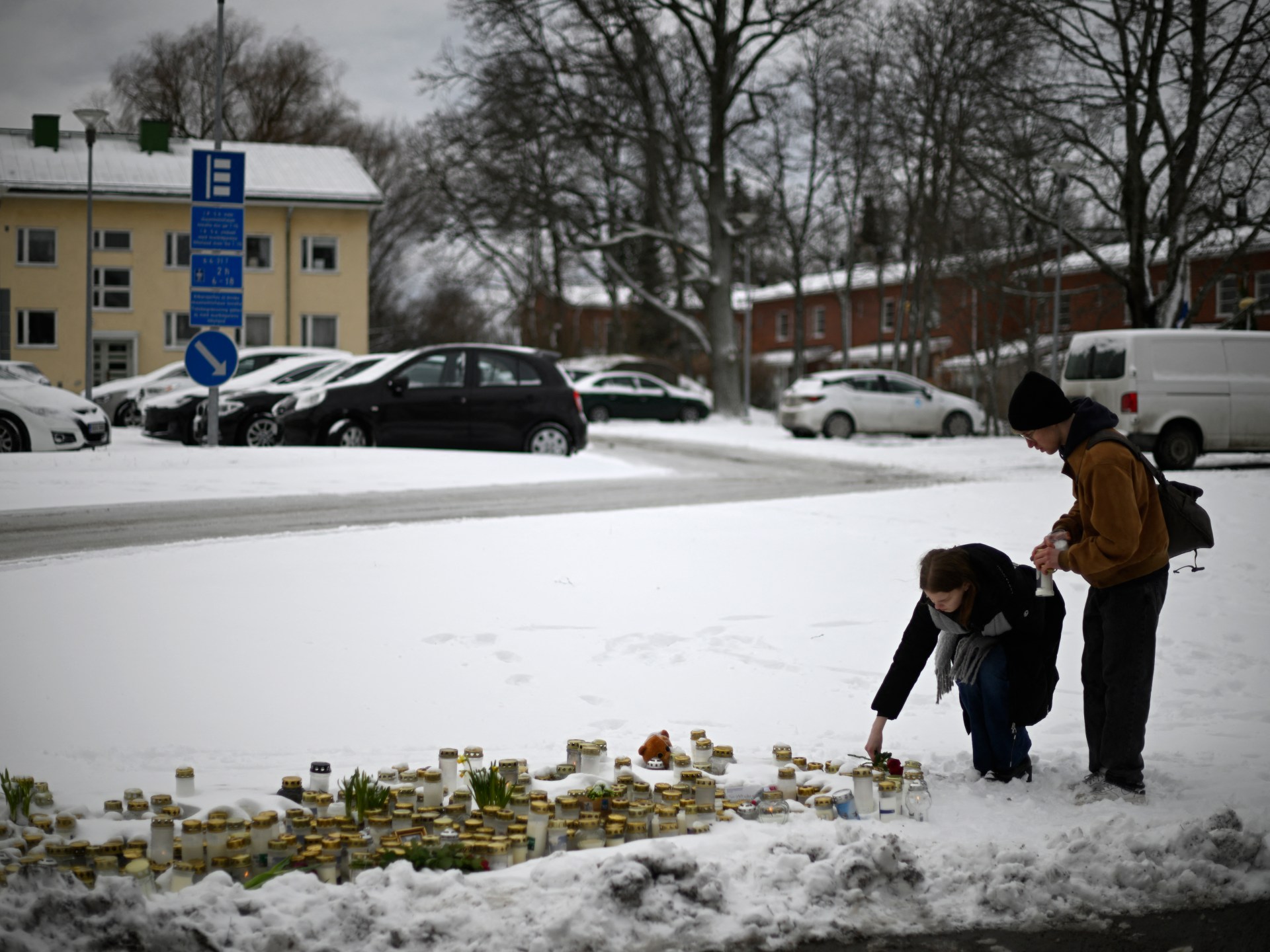Cracks in India’s opposition alliance against PM Modi ahead of elections | Elections
New Delhi, India — Over the weekend, a popular joke on Indian social media featured Nitish Kumar, the 72-year-old nine-time chief minister of the east Indian state of Bihar.
Kumar’s Janata Dal (United) party, or just JD(U), had been a part of the INDIA opposition bloc – a group of more than two dozen political outfits that hopes to take on the Prime Minister Narendra Modi-led Bharatiya Janata Party (BJP) in national elections between March and May.
But on Sunday, he broke away and instead joined hands with the National Democratic Alliance (NDA), a coalition of parties led by the BJP. He resigned as chief minister, then was sworn in again, this time with his new partners — all within hours.
The joke (when translated) read: “Nitish Kumar is the only chief minister, who while being chief minister, resigns as chief minister so that he can remain chief minister.”
The BJP and its allies might well be laughing. Two months before nearly a billion Indians vote to elect their next government, Kumar’s exit from the INDIA alliance serves as a blow to the opposition’s chances of challenging Modi, who is aiming for a third term as prime minister. It also reveals deeper fissures in the opposition alliance.
Also last week, Mamata Banerjee, the chief minister of the neighbouring state of West Bengal and leader of the Trinamool Congress (TMC) party, pulled out of the alliance, which is led by India’s principal opposition party, the Congress. Apart from the Congress, the alliance primarily consists of regional, state-specific parties.
Both Banerjee and Kumar cited rifts with the Congress for their exit from the alliance. The main bone of contention: who gets to contest how many of the 543 parliamentary seats in the country.
Congress vs regional parties
The INDIA bloc is hoping to leverage India’s first-past-the-post electoral system by fielding one joint opposition candidate against the BJP and NDA in all parliamentary constituencies. Such a move, opposition parties argue, would ensure that the anti-BJP votes are consolidated and not divided among various opposition players.
But agreeing on consensus candidates is easier said than done.
“The charges all the regional parties are making is that Congress is trying to put a lot of pressure on them and demanding a larger number of seats than they should get,” Sanjay Kumar, political analyst and psephologist, told Al Jazeera.
That assertion was corroborated by KC Tyagi, general secretary of JD(U). Speaking to Al Jazeera, he said the Congress was keen on occupying political space but did not want to cede space to regional parties.
“In the states where Congress is strong, they are not parting with even one seat. And then in the states where regional parties are strong, they want a disproportionate number of seats,” said Tyagi. “It’s not just us but all constituents of the alliance were uncomfortable with them.”
Similarly, TMC’s Banerjee, while announcing her decision to break away from the alliance, cited a failure in seat-sharing talks with the Congress as one of the reasons for going into the polls solo.
What has also irked the TMC and the JD(U) is that Rahul Gandhi, a Congress parliamentarian and scion of the Gandhi family that has headed the party for decades, has embarked on a journey from the east to the west of the country, without adequately consulting them.
The journey is called the Bharat Jodo Nyay Yatra, which loosely translates into Uniting India through Justice March, a sequel to Gandhi’s Bharat Jodo Yatra last year where he walked more than 4,000km (2,485 miles) from the south to the north of India.
Both Banerjee and Nitish Kumar said they were not asked about the route of the yatra that goes through the states they rule. The JD(U) further said that instead of a Congress programme – which only builds Gandhi’s image – the party should have organised a nationwide programme under the INDIA banner.
The constituents of the alliance also accuse the Congress of delaying seat-sharing talks. Over the last year, the Congress won provincial elections in the crucial southern state of Karnataka and in the hilly northern state of Himachal Pradesh. While this provided the party (and India’s opposition) with some momentum against Modi, losses in the three crucial north Indian states of Madhya Pradesh, Chhattisgarh and Rajasthan in December came as a blow for the Congress.
Banerjee and Kumar have said the Congress postponed seat-sharing talks in the hope of winning these three states where it was in a one-on-one contest with the BJP. A win in these states would have put the Congress in a better bargaining position in the alliance.
INDIA vs INDIA
The alliance also faces a challenge in states like Punjab and Kerala, where INDIA partners are the main rivals and the BJP has a negligible presence.
In Punjab, the Aam Aadmi Party (AAP), an INDIA constituent, is the governing party and the Congress is the main opposition party. The AAP also runs the government in the national capital territory of Delhi.
Similarly, in Kerala, the Left Front rules the state, while the Congress is in opposition.
While Banerjee and Kumar were making their exits last week, the AAP chief minister of Punjab, Bhagwant Mann, announced that his party will go solo in the state and will not ally with the Congress.
Officially, however, the AAP says that while seat negotiations in Punjab are a work in progress, it has reached a preliminary understanding with the Congress in a few other states, including Delhi.
“We have had two meetings with the Congress which were attended by their senior leaders. We had a very constructive dialogue with them and had discussions on some of the states,” Saurabh Bharadwaj, an AAP spokesperson and legislator in Delhi, told Al Jazeera. “We’ll soon close the discussion.”
“With respect to Punjab, our state unit is not very keen to have an alliance. But we have not taken our final call yet”, he added.
Negotiating the interests of the state units with that of the central party leadership in Delhi is a challenge that the Congress and other regional parties in the alliance face.
There are some states, however, where seat-sharing talks are making headway. Akhilesh Yadav, the chief of the Samajwadi Party (SP), the main opposition party in the BJP-ruled state of Uttar Pradesh, announced that he would be willing to let the Congress fight in 11 out of the 80 parliamentary seats in the state.
SP spokesperson Ashutosh Verma told Al Jazeera that as per the rules of the alliance, the INDIA partner with the highest influence in a state would be making the decisions on seat-sharing in that state.
Verma also pointed out that in states like Punjab where INDIA partners are in both first and second place, the alliance was planning to put up a “tactical fight”.
“In one of the meetings of the alliance, it was decided that in the states of Punjab and Kerala [election] would be fought in a similar manner. These are the states where the BJP is either at number three or number four. In these states, we don’t want to make BJP the principal opposition. That is our strategy,” said Verma.
‘Bad optics’
Al Jazeera reached out to the Congress for its comment on the allegations made by its INDIA partners but had not received a response yet.
Addressing a news conference on Saturday, Congress general secretary Jairam Ramesh conceded that Banerjee and Kumar’s exits were bad optics for INDIA.
“The situation could be better … The optics … people are watching. News is coming in that one party is leaving and that it will form a government with the BJP, that another party is unhappy with us … it doesn’t look nice. It’s not good for INDIA’s image,” said Ramesh.
He, however, added that the party had not given up hope on the alliance.
Sanjay Kumar, the political analyst, said the BJP would gain from the split in the alliance. In Bihar, the JD(U)-led government had carried out a statewide caste census that the INDIA alliance had hoped to pitch as an election plank, in effect promising the prospect of enhanced affirmative action for people belonging to several lower castes, collectively known as the OBC (other backward class).
“The BJP stands to gain from the new shift that Nitish Kumar has made. It will be much easier for the BJP to mobilise the OBC votes now compared to the past,” he said. “Nitish Kumar was the leader who was taking the credit for getting the caste census conducted. Now that he has switched sides, the BJP can claim that credit,” he added.
In West Bengal, Kumar said, a three-way contest between the TMC, the Congress-Left alliance and the BJP will help Modi’s party.
The BJP, however, has dismissed the prospects of the opposition alliance — with or without the fissures within it.
“We never took this alliance seriously,” said RP Singh, a spokesperson for the BJP. He referred to how the party had won 303 seats out of 543 in the 2019 parliamentary elections. This time, he said, the party is aiming for 350 seats.
And while the elections might be nearing now, the BJP, he said, had been “working on this for two years”.
“Alliance or no alliance, it doesn’t affect the BJP.”
Check out our Latest News and Follow us at Facebook
Original Source




.jpg/image1170x530cropped.jpg)


